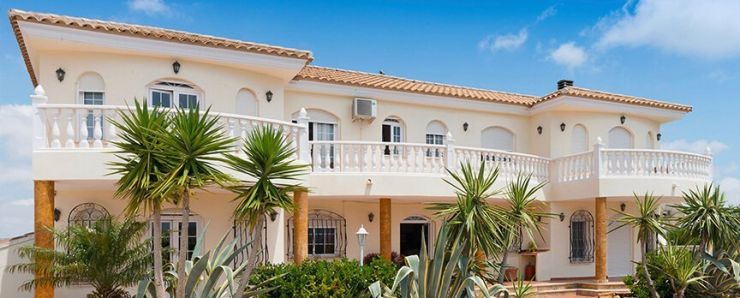Buying property overseas guide
Whether you're selling, investing in or buying property abroad, foreign exchange transfers are key to maximising the value of the currency you're sending – ultimately saving you a lot of money! Our insightful experts can recommend currency specialists that can source you the cheapest, quickest and most cost-effective international payment solutions for buying property overseas.
By utilising our website, thousands of people have been able to find the best deal, effortlessly saving them money on buying and selling currency for international property purposes.
The benefits of money transfer providers to buy property abroad
So now you've been introduced to the notion of money transfer providers in overseas property sales, let's look at all of the perks. The foreign currency specialists we recommend are experts in transferring money for when you wish to buy an overseas property, offering tempting benefits such as:
- Significantly better exchange rates than you would get from a bank
- No fees or commission
- Security against fluctuating exchange rates (talk to the providers below about fixing the rate)
- Fast international payments
- Hedging your currency exposure
- A dedicated account manager tailored to your requirements
Compare providers here to save money.

Planning for your house purchase or sale
So you're readying yourself for the sale or for buying an overseas property? Save yourself some hassle by making contact with a money transfer provider nice and early on. Once you register for an account, you can receive expert advice on future exchange rates and how you can plan to de-risk the currency trade involved. There's also a variety of 'forward' or 'hedging' products to be able to lock-in a future exchange rate – don't be afraid to ask your provider for further details.
Maintaining your overseas property
If you're lucky enough to have a holiday home in a foreign country or you're an expat with a property back home, it's probable that you will have monthly expenses to cater for such as mortgage payments, rent or maintenance fees. By setting up a recurring payment plan with a money transfer company, you can make this process much easier to manage and steer clear of those costly monthly bank fees. Why not learn more about money transfers for the country you're researching with our guides below?
OUR MOST POPULAR MONEY TRANSFER GUIDES
Our guides cover the details of the money transfers and the providers that help when buying property in your destination country.
Transfer Money from Australia to Canada
Transfer Money from Australia to the UK
Transfer Money from Australia to the USA
Transfer Money from Canada to Australia
Transfer Money from Canada to the UK
Transfer Money from Canada to the USA
Transfer Money from the UK to Australia
Transfer Money from the UK to Canada
Transfer Money from the UK to the USA
Transfer Money from the USA to Australia
Transfer Money from the USA to Canada
Transfer Money from the USA to the UK
